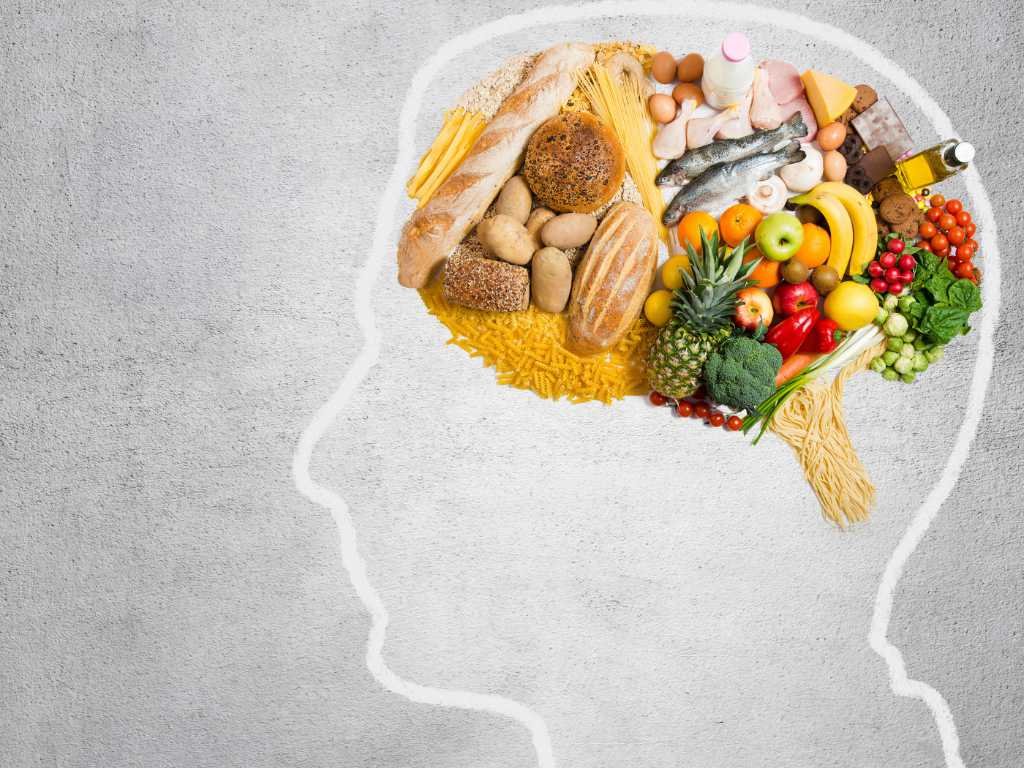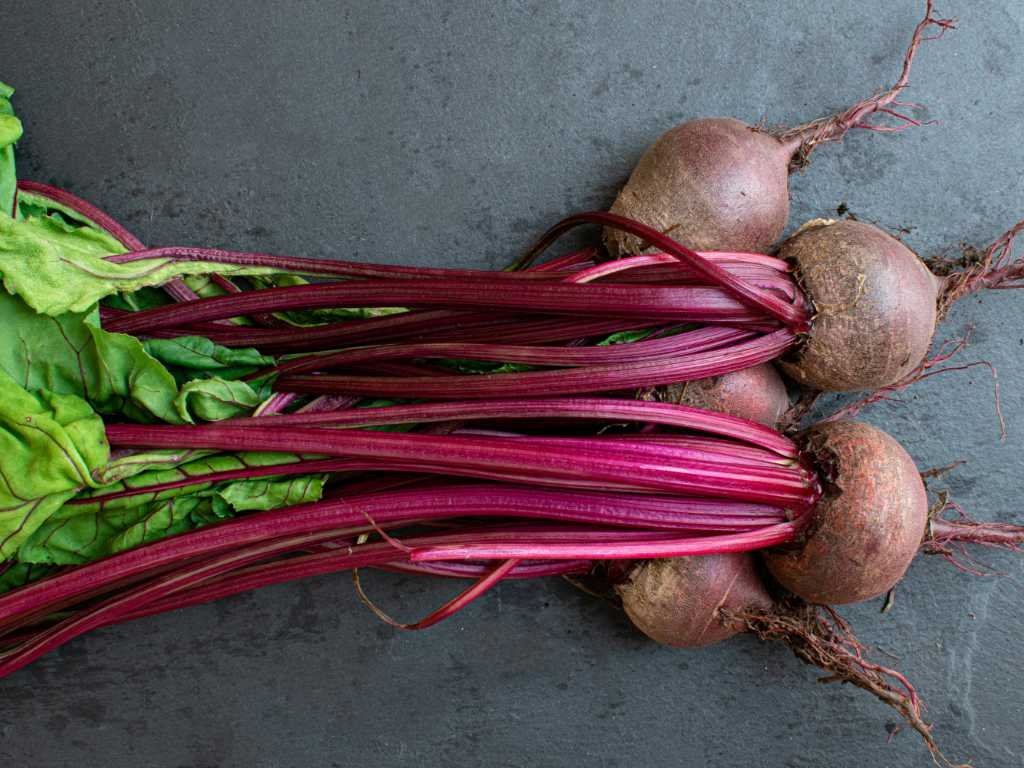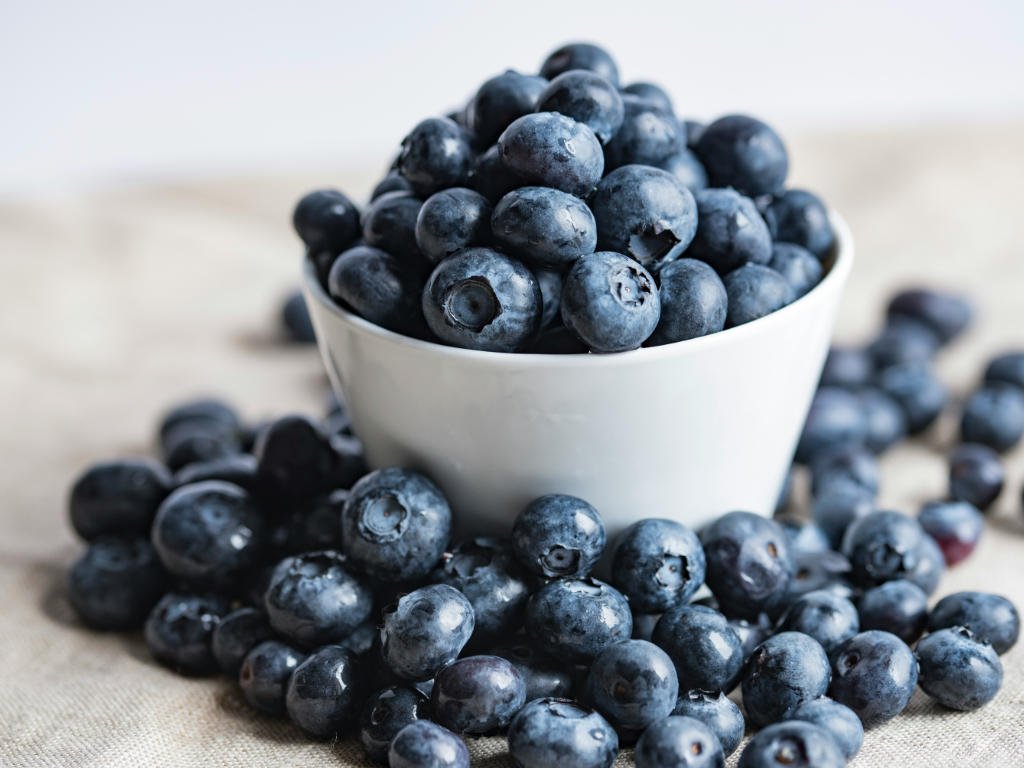Table of Contents
Ever sit at your desk mid-afternoon, staring at your computer screen, feeling like your brain’s running on empty? You’re not alone. We’ve all been there – that frustrating moment when our mental gears seem to grind to a halt, leaving us struggling to focus on even the simplest tasks. But here’s the thing: what you eat directly impacts how clearly you think, how well you focus, and how sharp your mental edge stays throughout the day.
The connection between foods for mental clarity and cognitive performance isn’t just some wellness trend – it’s backed by solid science. Your brain, despite making up only about 2% of your body weight, consumes roughly 20% of your daily energy. That’s a hungry organ that demands quality fuel to function at its best.
Understanding How Food Affects Your Brain
What exactly happens when you eat brain-boosting foods?
Think of your brain like a high-performance car. You wouldn’t put cheap gas in a Ferrari, right? The same principle applies here. When you consume nutrient-dense foods, you’re providing your brain with premium fuel that supports neurotransmitter production, protects against oxidative stress, and maintains healthy blood flow to critical brain regions.
Research shows that certain nutrients can literally change the structure and function of your brain. Omega-3 fatty acids, for instance, help build and repair brain cells, while antioxidants act like tiny bodyguards, protecting your neurons from damage.
How does poor nutrition affect cognitive function?
When you’re running on processed foods, sugar crashes, and nutrient deficiencies, your brain operates in survival mode. You might experience brain fog, difficulty concentrating, memory lapses, and mood swings. It’s like trying to run that Ferrari on watered-down fuel – you’ll get where you’re going, but the ride won’t be smooth.
The Mental Health Diet Revolution
What makes a diet truly brain-healthy?
A mental health diet isn’t about restriction – it’s about strategic nutrition that supports your cognitive goals. This approach emphasizes whole foods rich in specific nutrients that your brain craves: omega-3 fatty acids, B vitamins, magnesium, antioxidants, and healthy fats.
The beauty of this approach is that it works on multiple levels. While you’re fueling better focus and clarity, you’re also supporting long-term brain health and potentially reducing your risk of cognitive decline down the road.

10 Revolutionary Foods for Mental Clarity & Focus
Let’s dive into the superstar foods that can transform your mental performance. These aren’t exotic ingredients you’ll struggle to find – they’re accessible, delicious options that can easily become part of your daily routine.
Fatty Fish: The Ultimate Brain Food
Salmon, sardines, mackerel, and other fatty fish are absolute powerhouses for mental clarity. They’re loaded with omega-3 fatty acids, specifically DHA and EPA, which are crucial for brain structure and function.
Here’s what makes them special: DHA makes up about 40% of the polyunsaturated fatty acids in your brain. When you’re not getting enough, your brain literally can’t build and maintain optimal cell membranes. Studies show that people who eat fish regularly have more gray matter in their brains – the tissue that contains most of your brain’s nerve cells.
Try incorporating fatty fish into your meals 2-3 times per week. Grilled salmon with herbs, sardines on toast, or mackerel salad are all delicious options.
Blueberries: Nature’s Memory Enhancers
These little blue gems are packed with antioxidants called anthocyanins, which give them their vibrant color and incredible brain-boosting properties. Research from Medical News Today indicates that blueberries can improve communication between brain cells and may even delay age-related cognitive decline.
The best part? You only need about half a cup daily to see benefits. Add them to your morning smoothie, yogurt, or just grab a handful as an afternoon snack.
Leafy Greens: The Foundation of Mental Sharpness
Kale, spinach, collard greens, and other leafy vegetables are nutritional goldmines for your brain. They’re rich in vitamin K, lutein, folate, and beta carotene – nutrients that support cognitive function and protect against mental decline.
One study found that people who ate one serving of leafy greens daily had the cognitive abilities of someone 11 years younger. That’s pretty impressive for something as simple as adding spinach to your sandwich!
Walnuts: Portable Brain Power
Among all nuts, walnuts stand out for brain health. They’re the only nut with a significant amount of plant-based omega-3 fatty acids, plus they contain antioxidants and vitamin E. Some research suggests that eating walnuts regularly is associated with improved cognitive test scores.
The recommended serving is about 1 ounce (roughly 14 walnut halves) per day. They’re perfect for snacking, adding to salads, or incorporating into your morning oatmeal.
Dark Chocolate: The Delicious Brain Booster
Yes, you read that right – chocolate can be good for your brain! Dark chocolate (70% cocoa or higher) contains flavonoids, caffeine, and antioxidants that can improve memory and focus. The flavonoids in cocoa beans help increase blood flow to the brain and may even stimulate the growth of new brain cells.
A small square or two after lunch can provide that afternoon mental boost without the crash that comes from processed sweets.
Pumpkin Seeds: Tiny Nutritional Powerhouses
Don’t overlook these small but mighty seeds. Pumpkin seeds are rich in magnesium, zinc, tryptophan, and antioxidants. Magnesium is crucial for learning and memory, while zinc plays a role in nerve signaling. According to Piedmont Healthcare, these nutrients work together to support overall brain function.
Sprinkle them on salads, add them to trail mix, or enjoy them roasted as a snack.
Beets: The Blood Flow Boosters
Beets might not be everyone’s favorite vegetable, but their brain benefits are undeniable. They’re high in nitrates, which your body converts to nitric oxide – a compound that helps dilate blood vessels and improve blood flow to the brain.
Better blood flow means more oxygen and nutrients reaching your brain tissue, which translates to improved cognitive performance. Try adding roasted beets to salads or blending them into smoothies.

Avocados: Creamy Brain Fuel
Avocados are rich in monounsaturated fats, which support healthy blood flow to the brain. They also contain vitamin E, an antioxidant that protects brain cells from oxidative damage. The healthy fats in avocados help your body absorb fat-soluble vitamins from other foods too.
Add sliced avocado to toast, salads, or blend it into smoothies for a creamy texture and brain-boosting benefits.
Green Tea: The Calm Focus Drink
Green tea contains a unique combination of L-theanine and caffeine that promotes relaxed alertness. Unlike coffee, which can sometimes cause jitters, green tea provides steady energy and improved focus without the crash.
L-theanine is an amino acid that promotes alpha brain waves, associated with relaxed but alert mental states. Combined with a moderate amount of caffeine, it’s like having a gentle, sustained mental boost.
Eggs: The Complete Brain Food
Eggs are one of the best sources of choline, a nutrient your brain uses to produce acetylcholine – a neurotransmitter crucial for memory and learning. They also contain B vitamins, which support energy metabolism in brain cells.
The versatility of eggs makes them easy to include in your diet. Whether scrambled, boiled, or made into an omelet with vegetables, they’re a convenient brain-boosting option.
The Science Behind Omega-3 Fatty Acids
Why are omega-3s so crucial for mental clarity?
Omega-3 fatty acids are literally building blocks of your brain. About 60% of your brain is made of fat, and omega-3s are essential for maintaining the integrity of brain cell membranes. They help brain cells communicate more effectively and support the growth of new neural connections.
Research shows that people with higher omega-3 levels have better memory, improved mood, and lower risk of cognitive decline. The anti-inflammatory properties of omega-3s also protect against brain aging and neurodegenerative diseases.
How much omega-3 do you need?
Most experts recommend getting at least 250-500mg of combined EPA and DHA daily. That’s roughly equivalent to eating fatty fish twice a week, or you can consider high-quality supplements if you don’t eat fish regularly.
The Power of Antioxidants for Brain Protection
What exactly do antioxidants do for your brain?
Your brain is particularly vulnerable to oxidative stress because it uses so much energy and contains high levels of fatty acids that can be damaged by free radicals. Antioxidants neutralize these harmful compounds, protecting your brain cells from damage and inflammation.
Think of antioxidants as your brain’s personal security team, constantly patrolling and neutralizing potential threats. Foods rich in antioxidants include berries, dark chocolate, leafy greens, and colorful vegetables.
Can you get too many antioxidants?
From food sources, it’s virtually impossible to get too many antioxidants. In fact, eating a variety of colorful fruits and vegetables ensures you’re getting different types of antioxidants that work synergistically to protect your brain.
Smart Strategies for Brain-Boosting Nutrition
How can you easily incorporate these foods into your daily routine?
Start small and be consistent. Here are some practical strategies that actually work:
Morning routine: Begin your day with eggs cooked in a bit of olive oil, alongside some spinach and a small portion of walnuts. This combination provides choline, healthy fats, and antioxidants to fuel your morning mental tasks.
Afternoon energy: Instead of reaching for sugary snacks, try a handful of blueberries with a few squares of dark chocolate. This combo provides sustained energy without the crash.
Evening wind-down: A cup of green tea with dinner can help you maintain mental clarity without interfering with sleep, thanks to L-theanine’s calming effects.
For those interested in comprehensive approaches to wellness, exploring sustainable weight loss strategies can complement your brain-healthy eating habits.

Meal Planning for Mental Clarity
What does a brain-healthy day of eating look like?
Breakfast: Scrambled eggs with spinach and avocado, served with a side of blueberries
Lunch: Salmon salad with mixed greens, walnuts, and beets
Snack: Pumpkin seeds and a square of dark chocolate
Dinner: Grilled mackerel with roasted vegetables and a cup of green tea
This isn’t about perfection – it’s about consistency. Even incorporating 2-3 of these foods daily can make a noticeable difference in your mental clarity and focus.
Common Mistakes to Avoid
What brain-healthy eating mistakes should you watch out for?
Don’t fall into the “all or nothing” trap. You don’t need to completely overhaul your diet overnight. Small, consistent changes are more sustainable and effective than dramatic shifts you can’t maintain.
Also, avoid relying solely on supplements. While they can be helpful, whole foods provide nutrients in forms your body can best utilize, along with beneficial compounds that work synergistically.
The Timeline for Mental Clarity Improvements
How quickly can you expect to see results?
Some people notice improvements in focus and energy within a few days of eating more brain-healthy foods, especially if they’re coming from a diet high in processed foods and sugar. More substantial changes in memory and cognitive performance typically become apparent after 2-4 weeks of consistent healthy eating.
Remember, this isn’t a quick fix – it’s a lifestyle approach that supports both immediate mental performance and long-term brain health.
Frequently Asked Questions
Can certain foods really improve memory and focus immediately?
While no food provides instant cognitive enhancement, some can offer relatively quick benefits. Green tea, for example, can improve focus within 30-60 minutes due to its caffeine and L-theanine content. Dark chocolate can also provide a quick mental boost, though the most significant benefits come from consistent consumption of brain-healthy foods over time.
Is it better to eat these foods at specific times of day?
Timing can matter for some foods. Fatty fish and nuts are great for lunch or dinner, providing sustained energy without affecting sleep. Green tea is best consumed earlier in the day to avoid sleep disruption. Eggs make an excellent breakfast choice, providing stable energy and nutrients when your brain needs them most.
Can these foods help with brain fog and mental fatigue?
Absolutely. Brain fog often results from inflammation, blood sugar fluctuations, or nutrient deficiencies. The anti-inflammatory properties of omega-3s, the steady energy from healthy fats, and the antioxidants in berries and leafy greens can all help clear mental fog and reduce fatigue.
Are there any foods that can harm mental clarity?
Yes, certain foods can negatively impact cognitive function. Highly processed foods, excessive sugar, and trans fats can promote inflammation and cause energy crashes. Limiting these while increasing brain-healthy options will give you the best results.
Do I need to eat all these foods every day?
Not necessarily. Aim for variety and consistency rather than perfection. Including 3-4 of these brain-boosting foods daily will provide significant benefits. The key is making these foods regular parts of your diet rather than occasional additions.
Understanding how stress management techniques work alongside proper nutrition can further enhance your mental clarity and overall cognitive performance.
Creating Your Personal Brain-Health Plan
The journey to better mental clarity through nutrition is highly individual. What works amazingly for your friend might need tweaking for your lifestyle, preferences, and health goals. Start by identifying 2-3 brain-boosting foods you already enjoy and focus on including them more regularly.
Keep a simple food and mood journal for a week or two. Note how you feel mentally after eating different foods. This awareness will help you identify which foods for mental clarity have the most noticeable impact on your cognitive performance.
The relationship between nutrition and mental clarity is profound and well-documented. By incorporating these 10 revolutionary foods into your regular eating routine, you’re not just feeding your body – you’re optimizing your brain’s ability to think clearly, focus deeply, and perform at its best.
Remember, this isn’t about achieving perfection overnight. It’s about making consistent choices that support your cognitive goals while enjoying delicious, satisfying foods. Your brain will thank you for the premium fuel, and you’ll likely notice the difference in your mental sharpness, focus, and overall quality of life.
Start small, stay consistent, and give your brain the nutrition it deserves. The investment in brain-healthy eating today pays dividends in mental clarity, focus, and cognitive health for years to come.



1 comment
[…] you’re looking to boost your mental clarity naturally, you might want to check out these foods for mental clarity that work synergistically with B […]